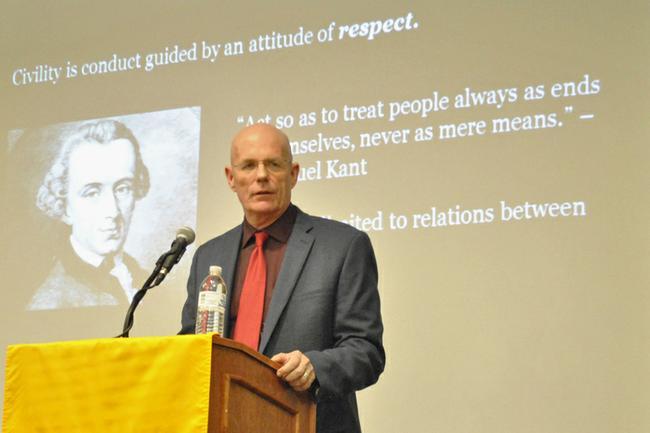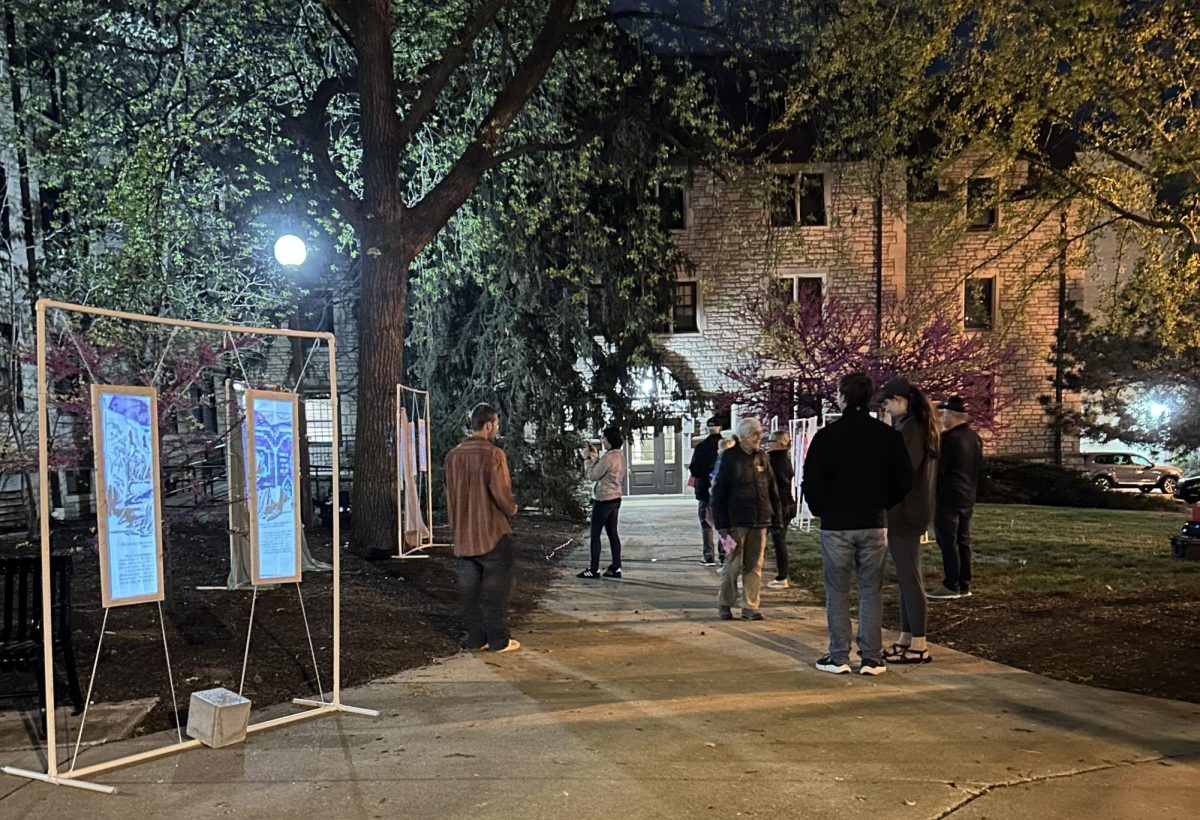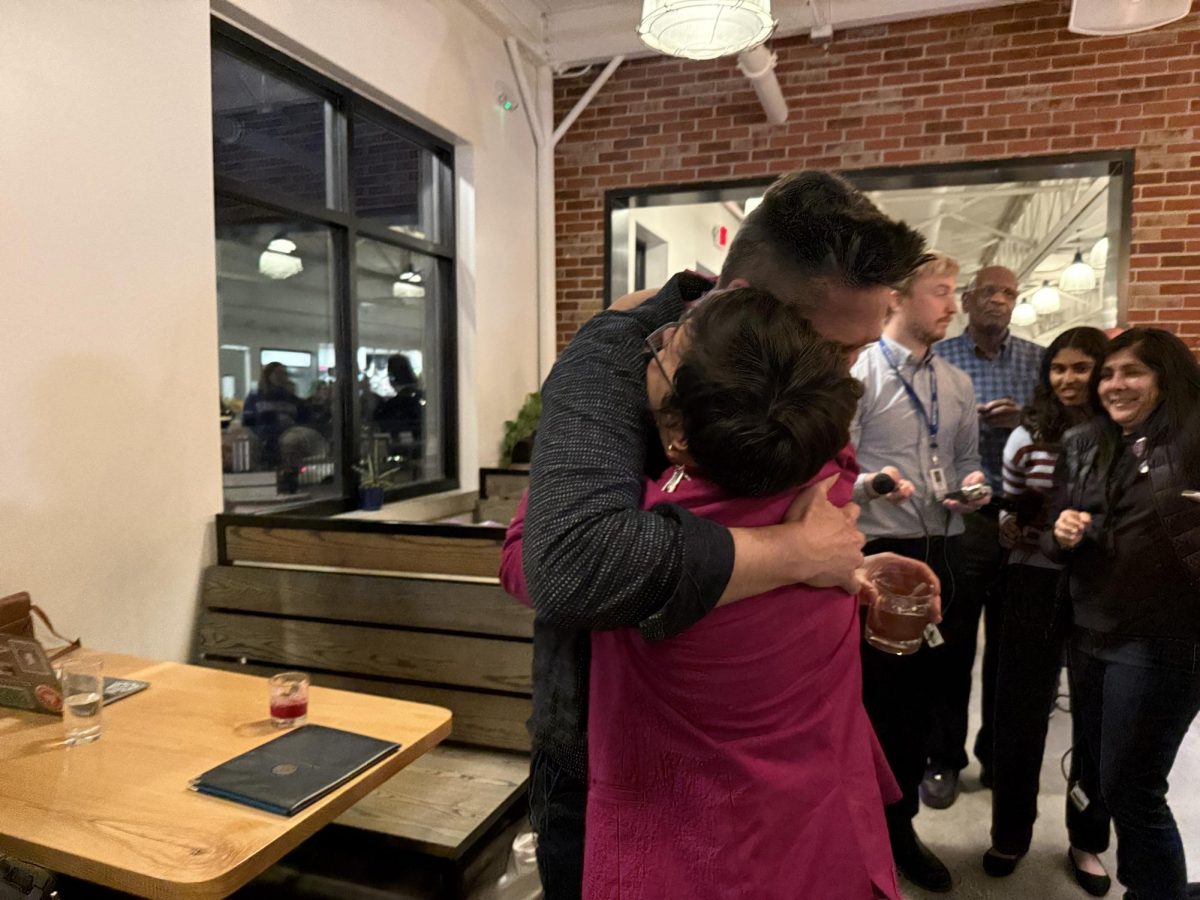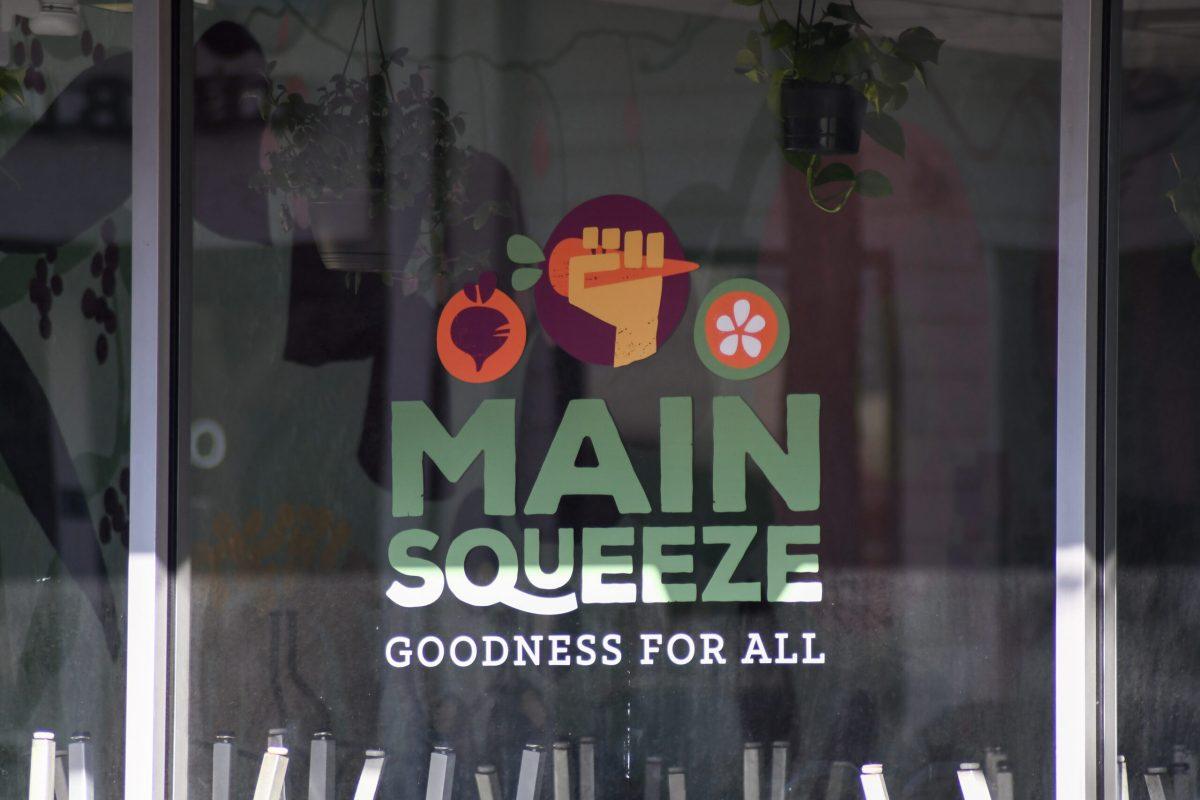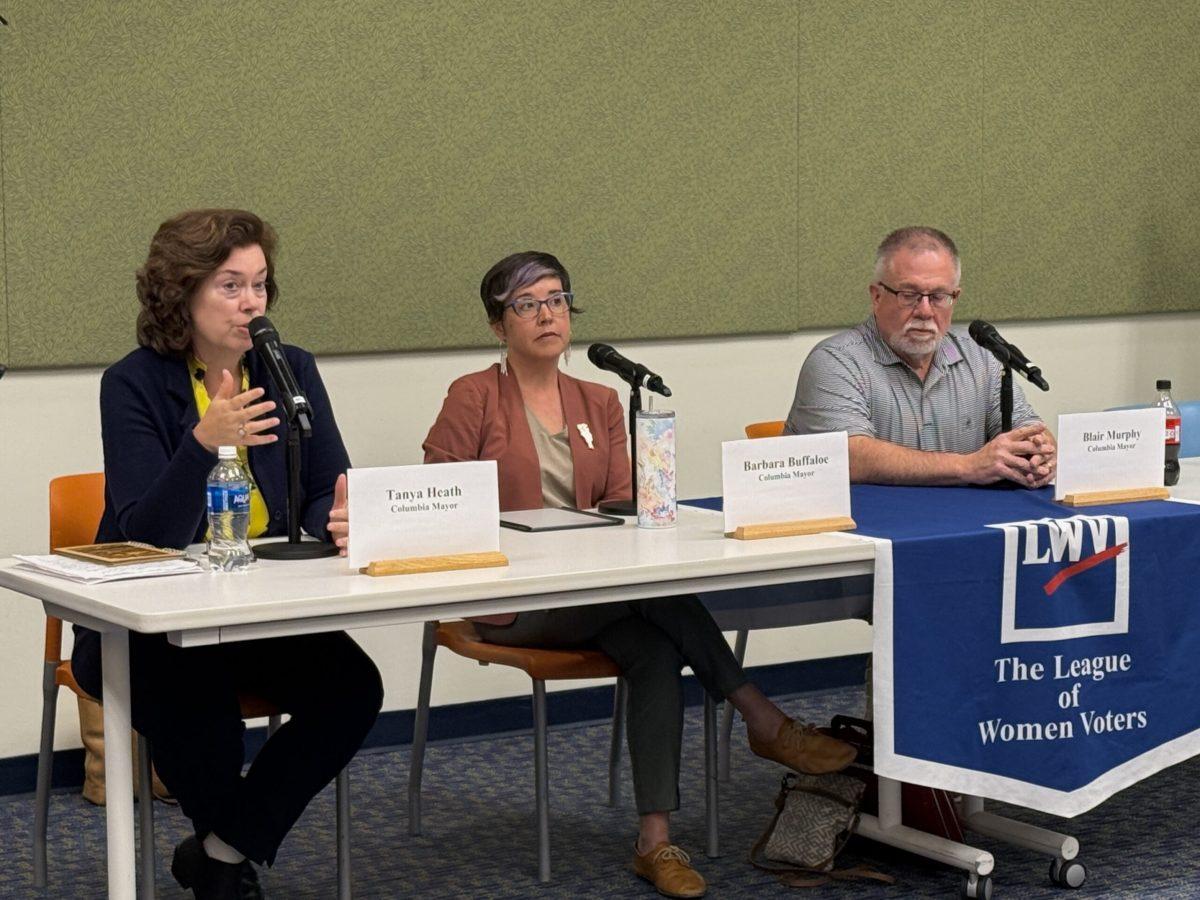The Mizzou Diversity Summit concluded its first day with keynote speaker David Livingstone Smith, who spoke about dehumanization.
Smith is a public philosopher who deals with issues relating to human nature such as why people lie. He also spoke at the G20 Summit in Mexico City about mass violence.
Dehumanization unleashes extreme violence resulting in war, genocide and other atrocities, Smith said. Humans have natural inhibitions against violence toward other humans, but dehumanizing others disables these inhibitions.
At its core, dehumanization is thinking of other humans as less than human, Smith said. This practice has been prevalent throughout history from the treatment of the Native Americans to the genocides in Rwanda.
No non-government organization is devoted to the study of dehumanization, Smith said. Scientific literature concerning dehumanization is also sparse.
“This has got to change,” Smith said. “It has got to take dehumanization seriously.”
Sophomore Kelly Johnson said she found this talk enlightening.
“It’s something I haven’t really thought about,” Johnson said. “(The summit) is invaluable. Everyone needs to open their eyes and not dehumanize people.”
Smith began his talk by defining civility, which coincides with the theme for this year’s summit, “What’s civility got to do with it?”
The Mizzou Diversity Summit occurs every two years, and this is the third one ever held. The summit also serves as the kickoff for the Show Me Respect campaign sponsored by the Chancellor’s Diversity Initiative, according to a MU [news release](http://munews.missouri.edu/events/2012/1030-media-advisory-mu-to-host-2012-mizzou-diversity-summit/).
Show Me Respect aims to promote civil discourse and mutual respect among MU community members, CDI Coordinator of Diversity Programs Charlie Parker said.
This year’s summit has 350 to 375 people registered, Parker said.
“Everyone from the chancellor himself to staff, faculty and students are participating,” Parker said. “The fact that (Smith) is presenting at this conference shows the growth of this conference.”
Junior Chasity Hurd, who attended the presentation Monday night, said she planned to participate in some of the workshops Tuesday.
“I’m an education major, so it’s important,” Hurd said. “If I know a little about my students’ background, it can help me teach them and help them learn from me.”
The summit will conclude Tuesday with morning workshops and a human library.
The Mizzou Human Library Project is the brainchild of CDI Multimedia Specialist Niki Stanley.
“I just want people to come away with a deeper understanding of someone that’s different,” Stanley said.
The human library features 14 “books,” each an actual person with a diverse background. These “books” range from a Japanese-American who spent early childhood years in a relocation camp to someone who recovered from an eating disorder, according to the [Mizzou Diversity Summit’s website](http://diversity.missouri.edu/summit/human-library.php).
Johnson, who is the “book” about eating disorders, said she hopes to get the point across that having an eating disorder is not a choice.
The human library is intended to break down stereotypes by getting past superficial impressions so people can see the books for what “they” are, Stanley said.
The Mizzou Human Library Project will take place from noon to 4 p.m. Tuesday in Memorial Union S304.

